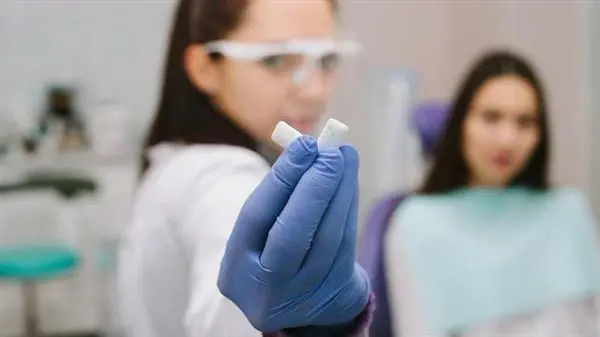Chewing gum reduces omicron in saliva
An experimental chewing gum that “captures” the new coronavirus in saliva is expected to curb the spread of a new variant of the virus, according to new research data, and researchers will soon conduct the first human trials.
The experimental gum contains a copy of the ACE2 protein found on the surface of the virus, which the coronavirus uses to erode cells. In test tubes of saliva from patients infected with the delta or Omicron variants, the virus attached to ACE2 receptors in chewing gum and the viral load dropped to undetectable levels. Another experimental gum, made with soy flour instead of lettuce cells, caught not only the new coronavirus, but also strains of influenza and other coronaviruses that cause the common cold, as well as some oral viruses, such as human papillomavirus and herpes virus.
“Nasal transmission is negligible compared to oral transmission…while chewing ACE2 gum and swallowing ACE2 protein minimizes infection, protects COVID-19 patients, and prevents transmission,” said study leader Henry Henry of the University of Pennsylvania School of Dental Medicine Dr. Daniel said.
Covid-19 patients experience sexual dysfunction and hair loss symptoms
British researchers compared 500,000 people who contracted and recovered from Covid-19 by mid-April 2021 but had long-term symptoms with 2 million uninfected people of similar age, gender and health status, and found that the most common symptom of Covid-19 patients was breathing Shortness, distorted smells, chest pain and fever, along with problems with memory, inability to complete familiar movements or commands, fecal incontinence, erectile dysfunction, hallucinations, and swelling of the extremities. In addition to this, the researchers found that young adults, women and minorities had higher rates of long-term COVID-19 symptoms.
More efficient nucleic acid detection equipment
Nucleic acid testing is rarely performed in point-of-care settings such as a doctor’s office or pharmacy because traditional equipment is bulky and expensive, and requires trained operators. Researcher Marco Fasone said that the new nucleic acid detection method can rapidly detect new coronavirus RNA and two new coronavirus variants in human saliva and nasal samples with 100% sensitivity and specificity.
It is understood that the new nucleic acid detection machine weighs only 0.9 kilograms and can give results within 23 minutes. “It’s now possible to speed things up and neither clinicians nor patients have to wait so long for results.”
However, these studies need further confirmation and have not been certified by industry reviewers.




GIPHY App Key not set. Please check settings